Youth empowerment extends beyond mere employment
Meet Fareeha Ali Yahya. This 26 year old is the new Media and Communications Officer at Oxfam in Pakistan. Together with her team she joined the three-day Influencing Strategy Development Workshop. While representatives from all country teams, partners and youth delved into their own institutional landscape, administrative structures, population demographics, cultural traditions, religious values and environmental conditions, it became apparent that almost none of the problems they faced were unique. Read her blog on the subject.
In the capital of Pakistan’s most neglected province, a young woman from one of the country’s most marginalized communities, Hamida Ali Hazara, took on the challenge of opening the city’s first ever restaurant run by women for women. The entrepreneur’s vision for women’s empowerment, however, extends beyond mere employment. Hamida also holds awareness-raising seminars to provide a platform for meaningful dialogue and practice in the field of human rights, health, sports and art, encouraging women to leave their homes and engage in civic life.
The unbounded potential of Pakistan
Hamida is from my hometown, Quetta, in Balochistan. Her story, among countless others, speaks of the struggles of an individual faced with multiple forms of discrimination as a woman, a Hazara and a Shia Muslim in Pakistan. This is exactly the type of perseverance against seemingly insurmountable odds that the Empower Youth for Work (EYW) project builds upon. Young people in Pakistan have unbounded potential, but lack avenues for realizing and actualizing their purpose. I am happy and honored to be part of the Empower Youth for Work Pakistan team as we together address the urgent need for youth employment in our country.
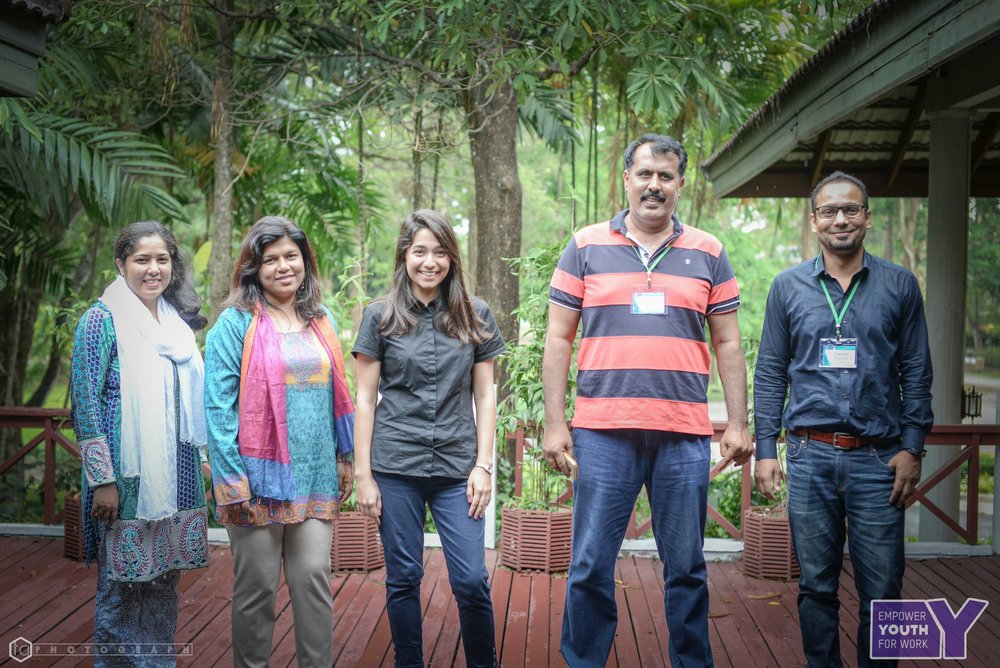
Repressive social norms and restrictive policies
The urgent need for youth empowerment cannot be met solely by the provision of tangible resources, but primarily through capacity-building and training for long-term sustainable change. In Pakistan’s context, such initiatives are significantly hindered by repressive social norms and restrictive policies. This is where influencing strategies come into play. The right actors must be targeted on the basis of a thorough power analysis and contextualized interventions should be introduced to impact all tiers, ranging from attitudes and beliefs at the community level to policies and regulations at the government level.
Reflect, identify and tailor
We engaged in useful brainstorming exercises, based on team work and streamlined with the expertise of the Project Management Unit from Oxfam Novib. We actively shared innovative ideas and devised effective strategies, incorporating our Theories of Change into the planning process,with a focus on devising EYW’s influencing strategy. It was an opportunity to reflect on our project’s past achievements, identify existing challenges and tailor future influencing activities in light of the lessons learnt.
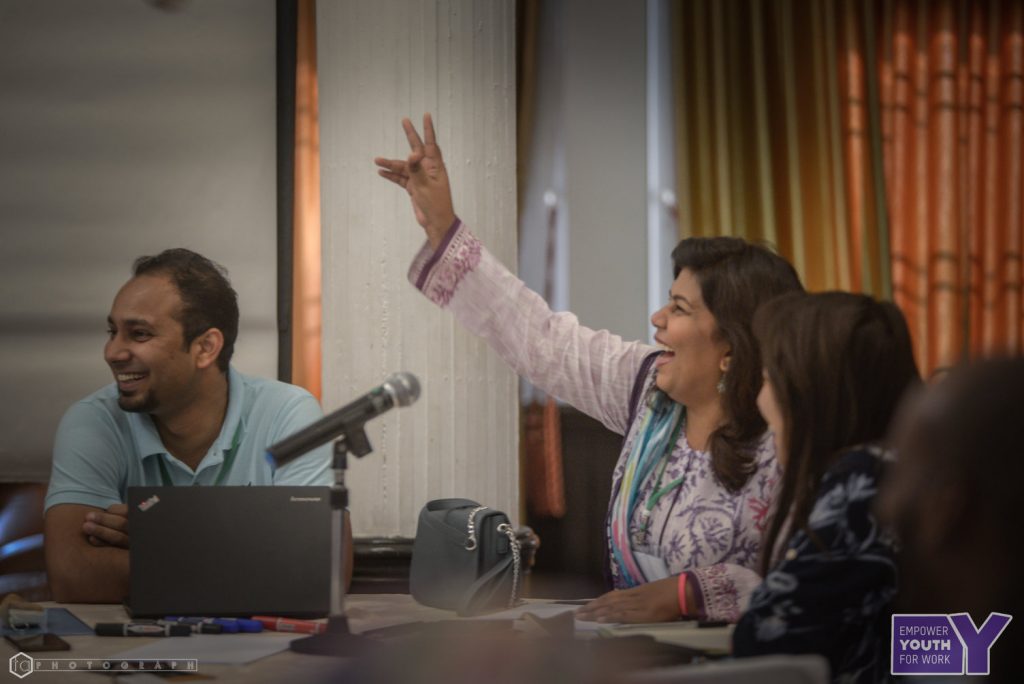
Maneuvering within Pakistan’s context
Having recently started my career in Media and Communications, I was eager to gain insight on the intricacies of EYW’s project planning phase for its 3rdyear. Hence, the workshop proved to be an ideal opportunity to acquire in-depth understanding of a crucial intervention and to learn practical techniques of maneuvering within Pakistan’s context to influence relevant and accessible stakeholders in the most cost-effective and efficient way possible.
No problem is unique
As each country team delved into its own institutional landscape, administrative structures, population demographics, cultural traditions, religious values and environmental conditions, it became apparent that almost none of the problems we faced were unique. This allowed us to work collaboratively on developing new and improved influencing strategies.
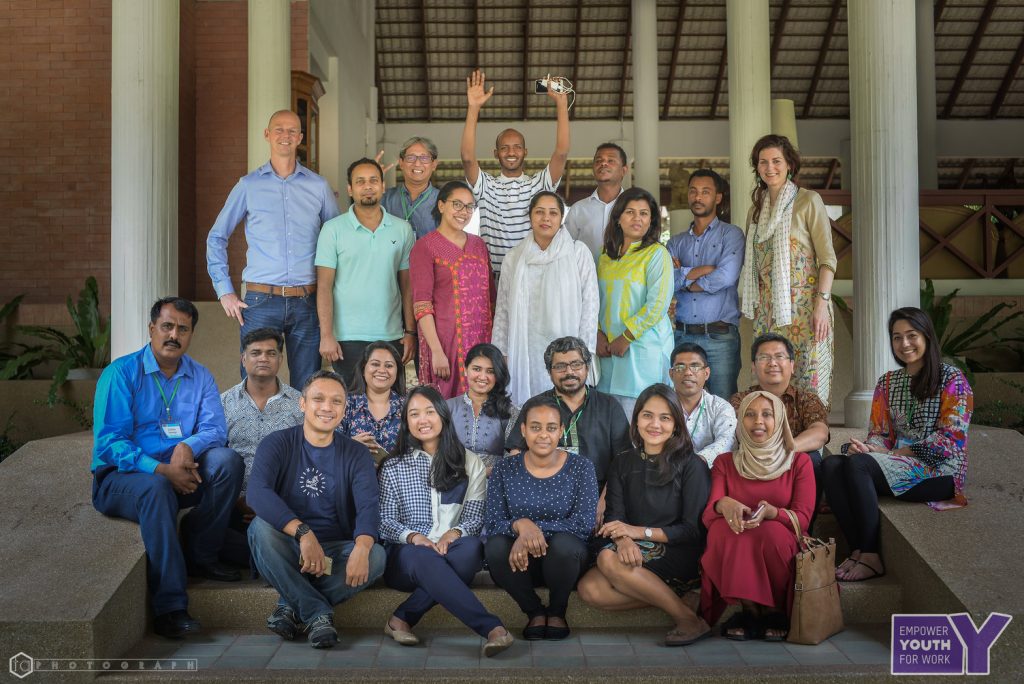
Clarity
If I could use one word to sum up my biggest takeaway from the workshop, it would be clarity. The tasks we were assigned, followed by group discussions and presentations, which were critically evaluated on the spot, provided me with great clarity on the influencing and communications agenda of the project. It is easy to lose sight of the overarching impact in social development work amidst all the variables and problems adversely affecting ongoing activities. But the workshop played a major role in providing us with a clear direction on our goals through an interactive and engaging approach, which included visual thinking through group sketching, brainstorming and dot-voting, convergent decision-making and the innovation funnel.
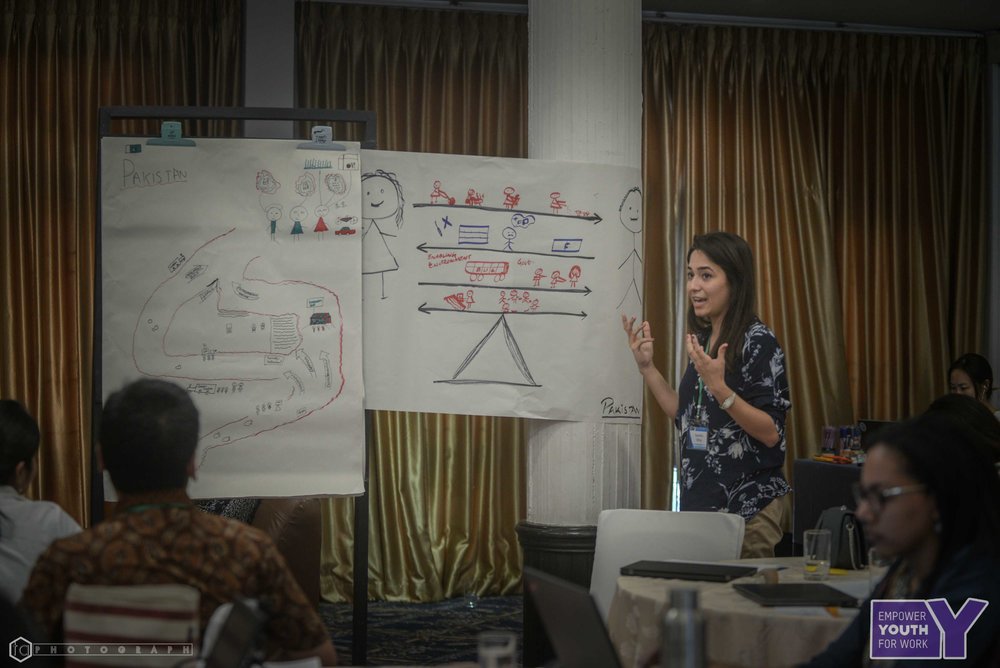
Culturally-relevant interventions
Complementing the comprehensive training session were innovative, context-specific examples of best practices from all four participating countries. These ranged from the capacity-building of local football players on gender-based violence in Ethiopia to the launch of the pink rickshaw campaign for enhanced female mobility in Pakistan. It was a testament to the success of creative and culturally-relevant interventions.
Looking forward
The combination of all the above mindful exercises made the Influencing Workshop a wonderful learning experience for learning experience for my team and I. I hope to apply the learnings to my work and support all Oxfam projects in Pakistan in effectively communicating their key messages. As Hamida Ali Hazara 's vision for women’s empowerment extended beyond mere employment so does the Empower Youth for Work programme. Interwoven in the building blocks of the Empower Youth for Work programme, influencing is a systematic effort to change; attitudes and beliefs, practices and policies, laws and regulations. The influencing strategy underlines how Oxfam worldwide organises it’s work worldwide.
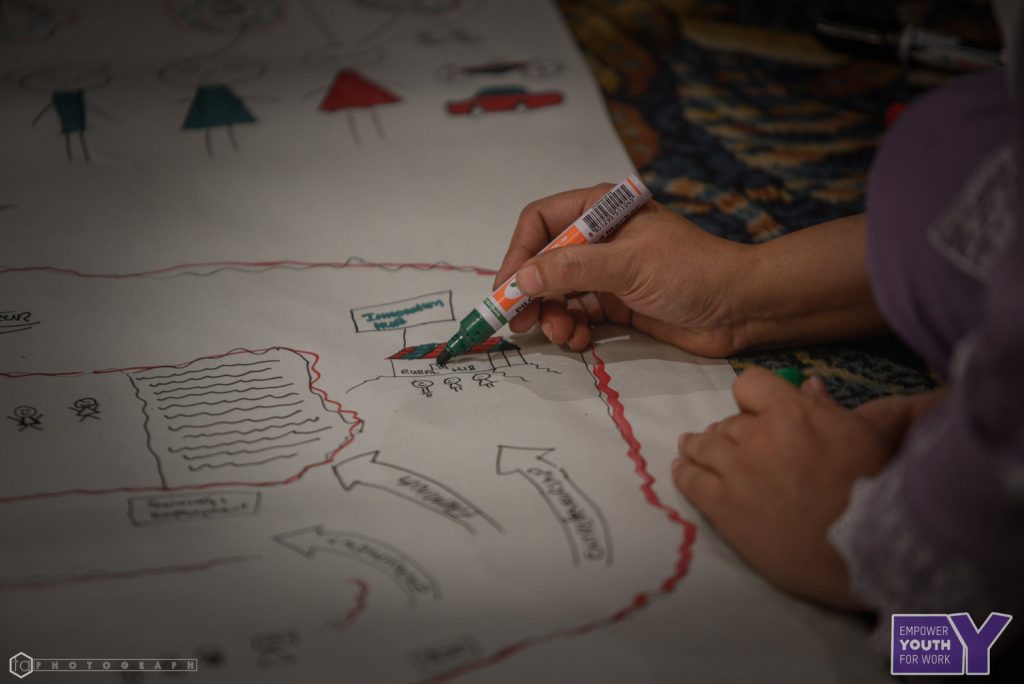
Photo credits: Ta Publication Design from WEAVE foundation
